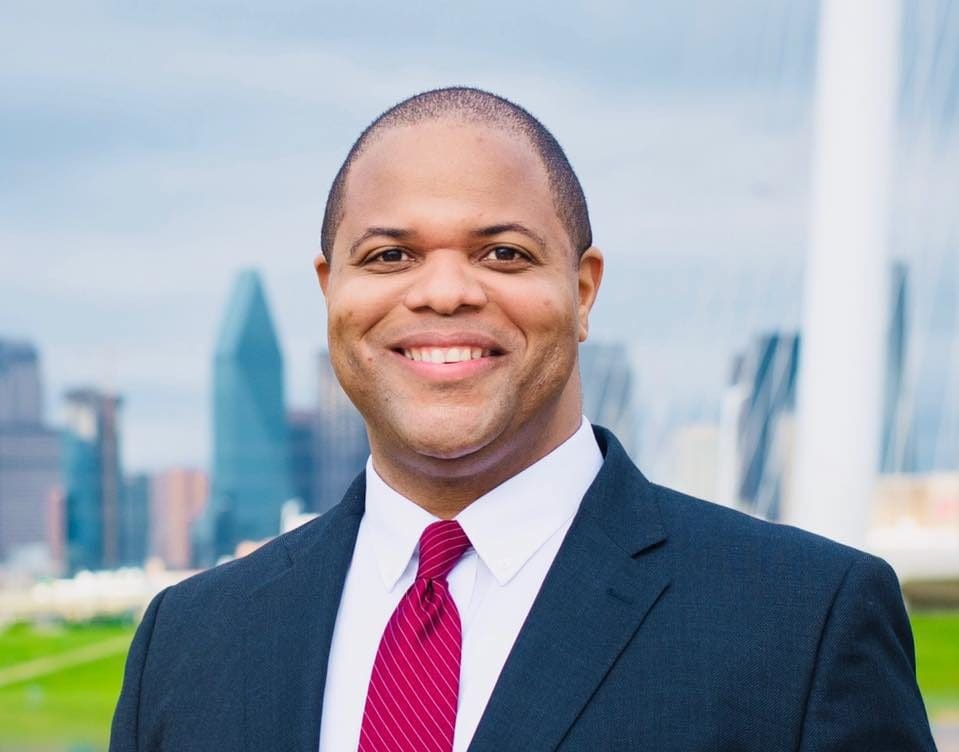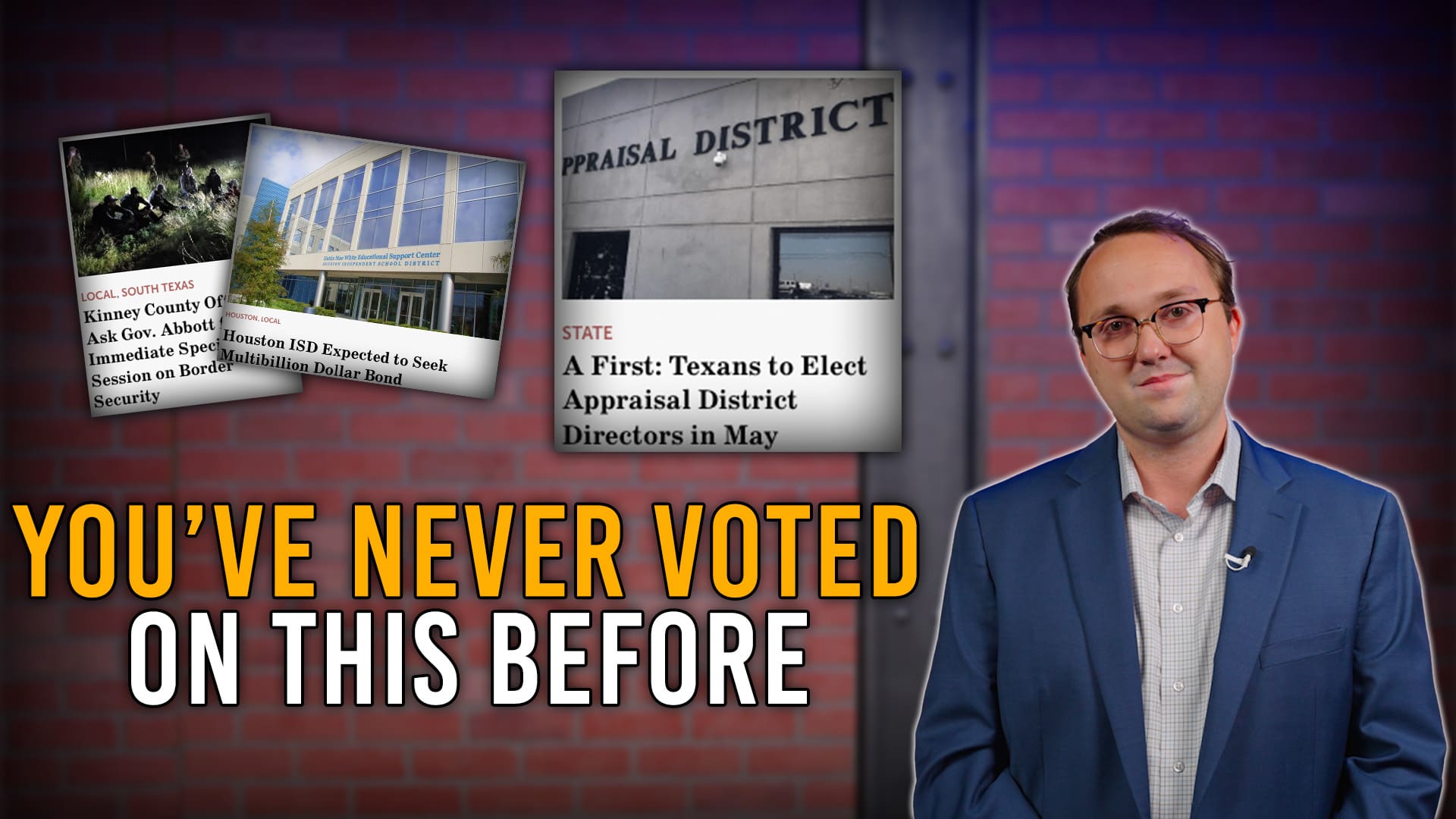Earlier this year, Dallas Mayor Eric Johnson participated in an exclusive interview with Texas Scorecard. In Part 1, he discussed the controversial police overtime cut that 11 Dallas council members passed despite his and citizens’ objections. On the first anniversary of George Floyd’s death, here is Part 2, where he discusses crime as well as police accountability and transparency.
2020 saw a crime wave hit Texas’ major cities. Dallas saw riots in the summer and ended the year with the highest murder rate it had seen in 15 years. Questions were also raised about police accountability and transparency following George Floyd’s tragic death in Minneapolis last year.
What is your plan for addressing higher crime levels in Dallas?
“We need both law enforcement and community-based solutions to violent crime.
“I am not a police officer or a law enforcement expert. What I have asked from our police leaders is that they make a plan and that they present that plan to the public so people can understand it and can be part of the solution. The previous chief’s plan, which I demanded, plainly wasn’t successful. I am happy to have Chief Garcia aboard, and I know he is working on plans now. I am hopeful we can begin to see the trends move in the right direction this year.”
(Note: Police Chief Eddie Garcia presented his plan on May 5.)
“In addition, the Mayor’s Task Force on Safe Communities is a plan that deserves to be fully funded. Blight remediation, lighting, and violence interrupters all have proven effective in other cities, and we need to do as much of it in Dallas as we can. The plan received nearly $4.5 million in our city budget, which is outstanding. But it will only get us started. I am hoping for an even larger commitment next year.
“Longer term, we have to invest in programs and solutions that ensure equity and opportunities for all of our communities. Dallas ISD’s success is critical, for example, because a strong education is the best way to break cycles of poverty.
“We have worked to do what we can at the city level. For example, I created Dallas Works, a summer jobs program for young people in our city, as a way to give people stepping stones to successful careers and to ensure that kids stay busy and gainfully employed during the summer. Workforce development is very important to me as well. Our economy is changing rapidly, and we have to be ready for the jobs of tomorrow.”
What is your plan or policy for providing police accountability and transparency in Dallas?
“Police accountability is critical to our public safety efforts. Our community must be able to trust our police officers if we are going to reduce crime.
“I believe it is important for us, as policymakers, to give our police officers the resources they need to be successful. We must offer competitive pay and benefits to ensure we are able to attract the most talented people to our police department. We must provide the right equipment for them to do their jobs. We need to find solutions that lessen the burden on law enforcement. And we must offer the best available training.
“It is ultimately up to Chief Garcia and the city manager to instill a culture of accountability and to enforce the high standards our community has for our police officers. We also have a Community Police Oversight Board that is meant to provide an additional level of accountability.
“The city council also must do its job by holding our city executives accountable. For example, I recently created the City Council Ad Hoc Committee on General Investigating and Ethics and gave it the task of looking into the administrative decisions made after an officer became a person of interest in a capital murder investigation. The committee needs to look into who knew what, when they knew it, who made the decisions, and what the consequences of those decisions were.”
Regarding police reform, Dallas Police Officer Bryan Riser was arrested for murder. Catherine Cuellar, director of communications, outreach, and marketing for the City of Dallas, told us he was among the “hundreds” of DPD officers on District Attorney John Creuzot’s Brady list, aka disclosure compliance list. Do you feel such officers should continue to serve, and why or why not?
(Note: A judge ordered Riser’s release after prosecutors said they didn’t have enough evidence to convict him. Johnson was asked this question before Riser’s release).
“The ‘Brady’ list is far more complicated than that, but we are getting into personnel issues, and it would be inappropriate for me to comment on that.
“The city charter is clear that we are not to interfere on such matters. But I will say, generally, we need to ensure that our community can trust the decisions made by public safety leadership, which runs all the way up to the city manager’s office.
“That is why I created an Ad Hoc Committee on General Investigating and Ethics to look into who knew what, when they knew it, what decisions were made, and what the consequences of those decisions were.”
Citizens may watch all city council and committee meetings on the City of Dallas website. The latest meeting of the Ad Hoc Committee on General Investigating and Ethics was May 11. This summer, the city council will begin budget discussions. Early voting for the June 5 Dallas City Council runoff elections runs from May 24 to June 1.





